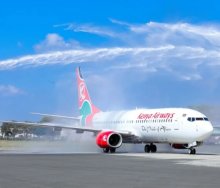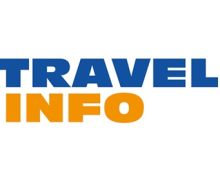The RFI also states that the
system should be fully owned
by government, offering B2B,
B2C and B2B2C booking
options.
While TMCs have responded
positively to the development,
the document is somewhat
critical of TMCs. It says the
conflicting priorities of TMCs
are one of government’s major
concerns due to undisclosed
revenue streams that are
earned through incentives,
rebates and commissions.
It adds: “Uncontrolled travel
spend is largely caused
by the reactive manner in
which government
departments manage travel.
In most cases, departments
request third-party TMCs
to arrange their travel
requests without being able
to effectively assess the
efficiency of the services being
rendered by the TMC before
expenditure takes effect.”
According to the document,
government aims to use
the tool to reap economies
of scale for the estimated
annual R10 billion spent on
travel. The system should
also reduce unauthorised
and wasteful expenditure,
reduce outstanding industry
debt, improve compliance with
Treasury regulations and offer
more data spend visibility.
Government travel and
subsistence make up
an average of 17,7% of
government budgets and is
currently growing at 5,5% per
annum. Government wants
T
REASURY is requesting
information from the travel
trade to inform its plan
to centralise all government
bookings under a one-sizefits-all
online travel booking
solution.
TNW understands that
submissions close on October
5 and that this will be followed
by a tender to build the new
system.
The online travel solution
must provide a fully integrated,
complete, easy-to-use and
scalable platform to create,
approve, book, manage,
integrate and distribute all
types of travel products and
services, says the request for
information (RFI).
to slow the annual growth to
2,7%.
Tim Straw, ceo of Travellinck,
is positive about the plans,
saying it makes sense for the
government to consolidate
spend and optimise supplier
deals. He added that the
new system would allow
TMCs to benefit from
standardised and systemised
government processes,
which would hopefully reduce
implementation, administration
and finance costs to the TMC.
“This platform will never
completely replace the service
element and the TMC will still
be a critical component of the
supply chain. The platform
should also allow the TMC to
provide a more personalised
service to the traveller as the
more mundane tasks should
be automated, freeing up
consultants to focus more
on the people side of service
delivery.
Tim also said he did not
believe that the system and its
planned B2C capabilities were
aimed at eliminating TMCs
from aspects of the supply
chain. He said it was not in
the interests of government to
disintermediate TMCs and that
the real goal of the system was
to achieve transparency and
control over travel spend.
Morné du Preez, ceo of
Tourvest Travel Services, said
the system would undoubtedly
streamline processes and
ensure that TMC products
were aligned to travel policies,
best airfares and rates,
while removing underhand
transactions.
“Negotiated government rates
will be available to all TMCs
and, hopefully, the solution
will also be able to monitor
declined savings and noncompliance
to ensure that the
best value-for-money products
have been booked and sold
to individual government
departments. Agency rebates
should not be affected as
every industry compensates on
volumes,” said Morné.
He also said that if TMCs
did not have state-of-the-art
IT and infrastructure, the
system would be cumbersome
to support and added that
government might become
more dictatorial about what
they would be prepared to pay
for bookings fulfilled by thirdparty
TMCs.













